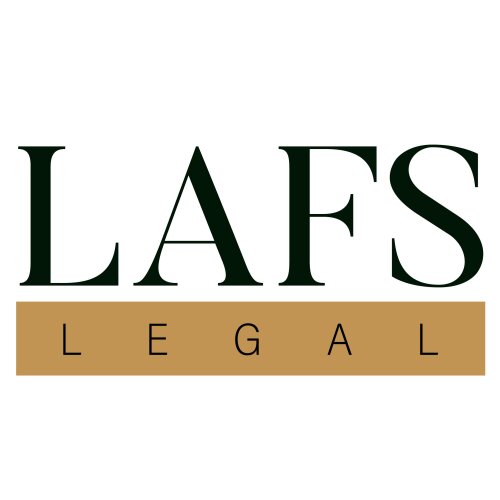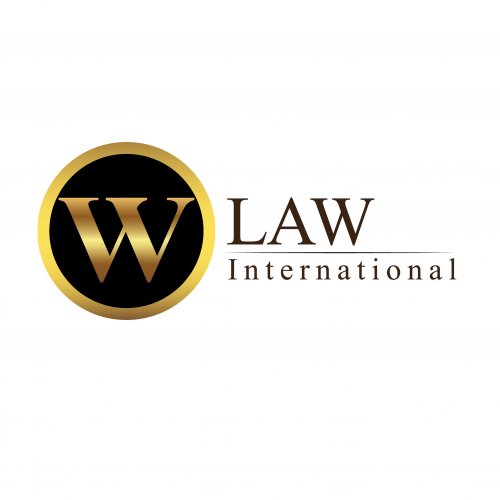Best Private Client Lawyers in Bangkok
Share your needs with us, get contacted by law firms.
Free. Takes 2 min.
List of the best lawyers in Bangkok, Thailand
Legal guides written by Smart Legal Solutions:
- Main Legal Measures to Protect Foreign Investment in Thailand
- The importance of the geographical indications for the Thai economy
About Private Client Law in Bangkok, Thailand
Private Client law in Bangkok covers a broad range of legal services focused on individuals and families, especially concerning their wealth, assets, and interests. This area of law typically includes estate planning, wills and succession, trusts, tax planning, asset protection, and family matters such as marriage, divorce, and child custody. Given Thailand's unique legal landscape and cultural context, these matters can be complex and may require specialist guidance to ensure compliance with local laws and the safeguarding of personal or family interests.
Why You May Need a Lawyer
There are many situations where seeking legal advice in Private Client matters becomes essential. For instance, if you need to draft a will to ensure your assets are passed on according to your wishes, navigate succession laws, or manage cross-border assets, a lawyer's expertise is invaluable. Expatriates living in Bangkok often require legal assistance to address unique challenges in marriage or divorce proceedings, child custody, or property ownership under Thai law. Furthermore, business owners and high-net-worth individuals often consult lawyers to protect their wealth, minimize tax implications, and ensure compliance with both Thai and international regulations. Finally, if a loved one passes away in Thailand, navigating probate and estate administration can be extremely difficult without sound legal guidance.
Local Laws Overview
Private Client law in Bangkok operates within the broader framework of Thai civil law. Key aspects include:
- The Civil and Commercial Code governs succession, marriages, divorces, and property ownership.
- Foreign nationals and Thai citizens are subject to different rules, particularly related to inheritance and property rights.
- Wills and inheritance: Thailand recognizes both Thai and international wills, but strict formalities must be observed for validity.
- Marriage and divorce: Family law in Thailand covers legal processes for registering a marriage, prenuptial agreements, and both contested and uncontested divorces.
- Child custody and adoption: These are subject to Thai law, which aims to protect the best interests of the child and may require court approval.
- Taxation: Thai law imposes specific inheritance and gift taxes, and it is crucial to understand these alongside any international obligations.
- Trusts: Traditional common law trusts are not recognized in Thailand; instead, alternative arrangements may need to be explored for asset protection and inheritance planning.
Given these complexities, experienced legal counsel is often needed to navigate the requirements and implications under Thai law.
Frequently Asked Questions
Can foreigners own property or land in Thailand?
Generally, foreigners cannot own land in their name in Thailand but can own condominiums, provided foreign ownership in the building does not exceed 49 percent. There may be legal structures such as leases or setting up a company that can be considered, but professional advice is essential.
Is a foreign will valid in Thailand?
A foreign will may be recognized in Thailand, but it must meet Thai legal requirements, and the estate administration process can be complicated. It is often advisable to have a separate will drafted in Thailand for local assets.
How does inheritance work under Thai law?
Inheritance is mainly governed by the Civil and Commercial Code. Thai law specifies statutory heirs and inheritance shares. Without a will, assets are distributed to relatives in a prescribed order. Having a will allows for more control over asset distribution.
What taxes apply to inheritance and gifts?
Thailand imposes inheritance and gift taxes under certain conditions. Generally, immediate family members benefit from higher exemptions, and rates can vary. Consulting a tax lawyer or advisor is recommended to understand your specific situation.
Can same-sex couples register their relationship or marry in Thailand?
As of now, Thailand does not legally recognize same-sex marriages or partnerships. However, the situation is evolving, and proposed legislation is under consideration.
How is divorce handled in Thailand?
Divorces can be administratively registered if both parties agree or handled through court if contested. Issues such as property division, alimony, and custody are determined according to Thai family law.
What is the process for making a will in Thailand?
A Thai will must comply with formal legal requirements, such as being in writing and signed by the testator in the presence of witnesses. Different types of wills are recognized, each with specific formalities.
How is child custody determined?
In the event of a separation or divorce, Thai law prioritizes the best interests of the child. Custody (guardianship) may be shared or granted to one parent, and court approval is often needed, especially for non-Thai parents.
Are trusts recognized in Thailand?
Traditional Anglo-Saxon trusts are not recognized under Thai law. However, there may be other legal mechanisms available for asset protection and succession planning with professional guidance.
Why is legal advice important for expatriates in Thailand?
Foreigners often face unique legal obstacles regarding property rights, family matters, and inheritance. Language barriers and different legal systems add complexity, making professional legal advice critical for compliance and effective personal planning.
Additional Resources
If you need further information or support, the following resources may be helpful:
- Ministry of Justice - responsible for legal administration and justice in Thailand
- Law Society of Thailand - professional body for lawyers in Thailand
- Consular sections of embassies in Bangkok - provide advice and support to their nationals
- Civil Court of Thailand - for matters involving family and succession disputes
- Thai Revenue Department - for guidance on taxation and inheritance matters
- Community legal aid clinics, some operating in major Bangkok hospitals and universities
Next Steps
If you believe you need legal assistance regarding Private Client matters in Bangkok, consider taking these steps:
- Clearly identify your particular needs, such as making a will, dealing with inheritance, or family law matters.
- Gather all relevant documents, including passports, property deeds, marriage or divorce certificates, and financial records.
- Seek recommendations for reputable law firms or lawyers specializing in Private Client law in Bangkok.
- Schedule a consultation, bringing your documentation and any questions or concerns you may have.
- Ensure you understand the fee structure before engaging a lawyer’s services.
- Stay informed throughout the legal process, asking for clear explanations of Thai law and procedures as they apply to your case.
Obtaining quality legal advice early on is the best way to protect your interests and address any issues before they become complicated or costly.
Lawzana helps you find the best lawyers and law firms in Bangkok through a curated and pre-screened list of qualified legal professionals. Our platform offers rankings and detailed profiles of attorneys and law firms, allowing you to compare based on practice areas, including Private Client, experience, and client feedback.
Each profile includes a description of the firm's areas of practice, client reviews, team members and partners, year of establishment, spoken languages, office locations, contact information, social media presence, and any published articles or resources. Most firms on our platform speak English and are experienced in both local and international legal matters.
Get a quote from top-rated law firms in Bangkok, Thailand — quickly, securely, and without unnecessary hassle.
Disclaimer:
The information provided on this page is for general informational purposes only and does not constitute legal advice. While we strive to ensure the accuracy and relevance of the content, legal information may change over time, and interpretations of the law can vary. You should always consult with a qualified legal professional for advice specific to your situation.
We disclaim all liability for actions taken or not taken based on the content of this page. If you believe any information is incorrect or outdated, please contact us, and we will review and update it where appropriate.
Browse private client law firms by service in Bangkok, Thailand
Bangkok, Thailand Attorneys in related practice areas.

















